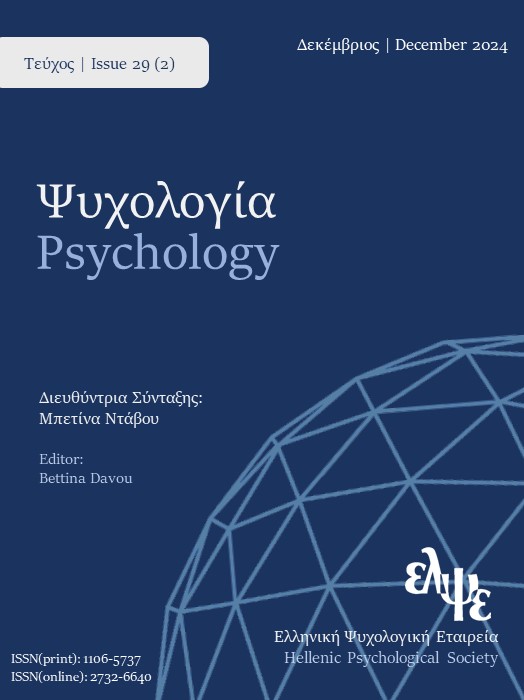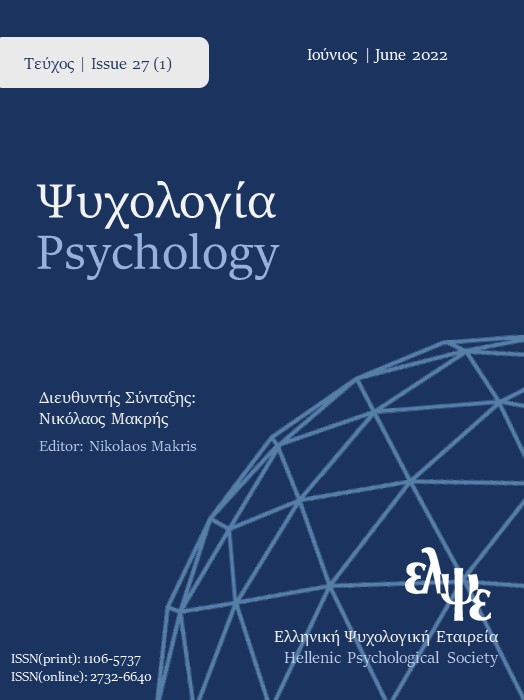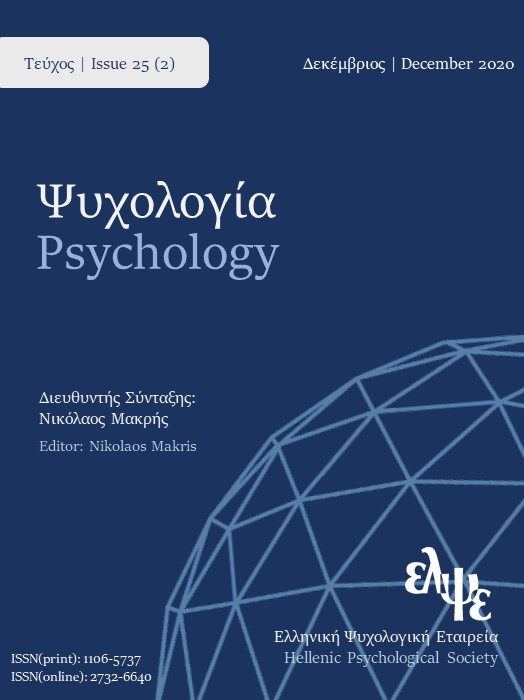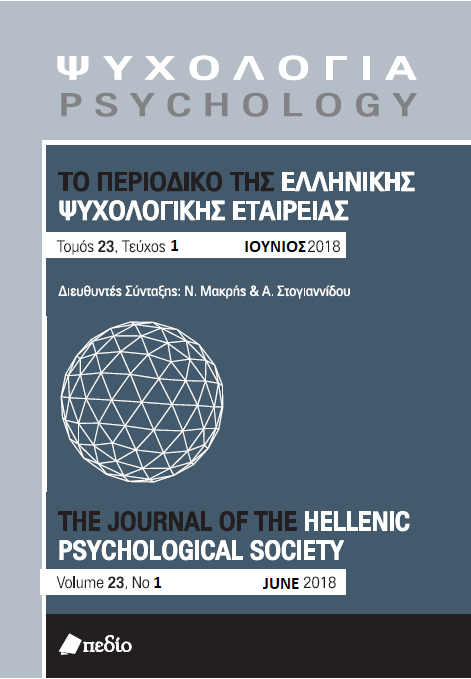Διαταραγμένη διατροφική συμπεριφορά, ενήλικη προσκόλληση και διαφοροποίηση του εαυτού

Περίληψη
Στην παρούσα μελέτη εξετάζεται η σχέση της διαταραγμένης διατροφικής συμπεριφοράς με την ενήλικη προσκόλληση, με διαμεσολαβητική μεταβλητή τη διαφοροποίηση του εαυτού. Το δείγμα της έρευνας αποτέλεσαν 302 ελληνόφωνοι ενήλικες. Στους συμμετέχοντες χορηγήθηκαν τα ερωτηματολόγια αυτοαναφοράς Eating Attitudes Test (EAT-26) για την αξιολόγηση της διατροφικής συμπεριφοράς, Experiences in Close Relationships-Revised (ECR-R) για την αξιολόγηση της ενήλικης προσκόλλησης και Differentiation of Self Inventory (DSI), για την αξιολόγηση της διαφοροποίησης του εαυτού. Οι αναλύσεις έδειξαν στατιστικώς σημαντικές συσχετίσεις της ενήλικης προσκόλλησης με τη διαφοροποίηση του εαυτού, της διαταραγμένης διατροφικής συμπεριφοράς με τη διαφοροποίηση του εαυτού καθώς και της διαταραγμένης διατροφικής συμπεριφοράς με την προσκόλληση. Επιπλέον βρέθηκαν διαφορές ως προς το φύλο τόσο στη συμπτωματολογία των διαταραχών διατροφής όσο και στις διαστάσεις της διαφοροποίησης του εαυτού. Τέλος, παρατηρήθηκε στατιστικώς σημαντική διαμεσολάβηση της διαφοροποίησης του εαυτού στη σχέση της διατροφικής συμπεριφοράς με την ενήλικη προσκόλληση. Διαπιστώθηκε ότι η σχέση της διαταραγμένης διατροφικής συμπεριφοράς και της ενήλικης προσκόλλησης είναι μερικώς έμμεση, διαμεσολαβούμενη από τη διαφοροποίηση του εαυτού.
Λεπτομέρειες άρθρου
- Πώς να δημιουργήσετε Αναφορές
-
Κρεμμύδα Ν., & Τάνταρος Σ. (2024). Διαταραγμένη διατροφική συμπεριφορά, ενήλικη προσκόλληση και διαφοροποίηση του εαυτού. Ψυχολογία: το περιοδικό της Ελληνικής Ψυχολογικής Εταιρείας, 29(2), 37–56. https://doi.org/10.12681/psy_hps.34894
- Ενότητα
- ΕΜΠΕΙΡΙΚΕΣ ΕΡΓΑΣΙΕΣ

Αυτή η εργασία είναι αδειοδοτημένη υπό το Creative Commons Attribution-ShareAlike 4.0 International License.
Το περιοδικό ΨΥΧΟΛΟΓΙΑ έχει υιοθετήσει μία πολιτική Platinum open-access. Τα έξοδα υποβολής, επεξεργασίας ή δημοσίευσης των εργασιών καλύπτονται από την Ελληνική Ψυχολογική Εταιρεία. Τα πνευματικά δικαιώματα των δημοσιευμένων εργασιών προστατεύονται από την άδεια 'Creative Commons Attribution-ShareAlike 4.0 International'. Οι Συγγραφείς διατηρούν τα Πνευματικά Δικαιώματα και χορηγούν στο περιοδικό το δικαίωμα της πρώτης δημοσίευσης. Η άδεια αυτή επιτρέπει σε τρίτους, να χρησιμοποιούν την εργασία σε οποιαδήποτε μορφή, με την προϋπόθεση της διατήρησης των διατυπώσεων που προβλέπονται στην άδεια σχετικά με την αναφορά στον αρχικό δημιουργό και την αρχική δημοσίευση στο περιοδικό ΨΥΧΟΛΟΓΙΑ. Επιπλέον, κάθε διανομή της εργασίας οφείλει να γίνεται με τους ίδιους όρους διανομής, δηλαδή με την ίδια άδεια Creative Commons.







